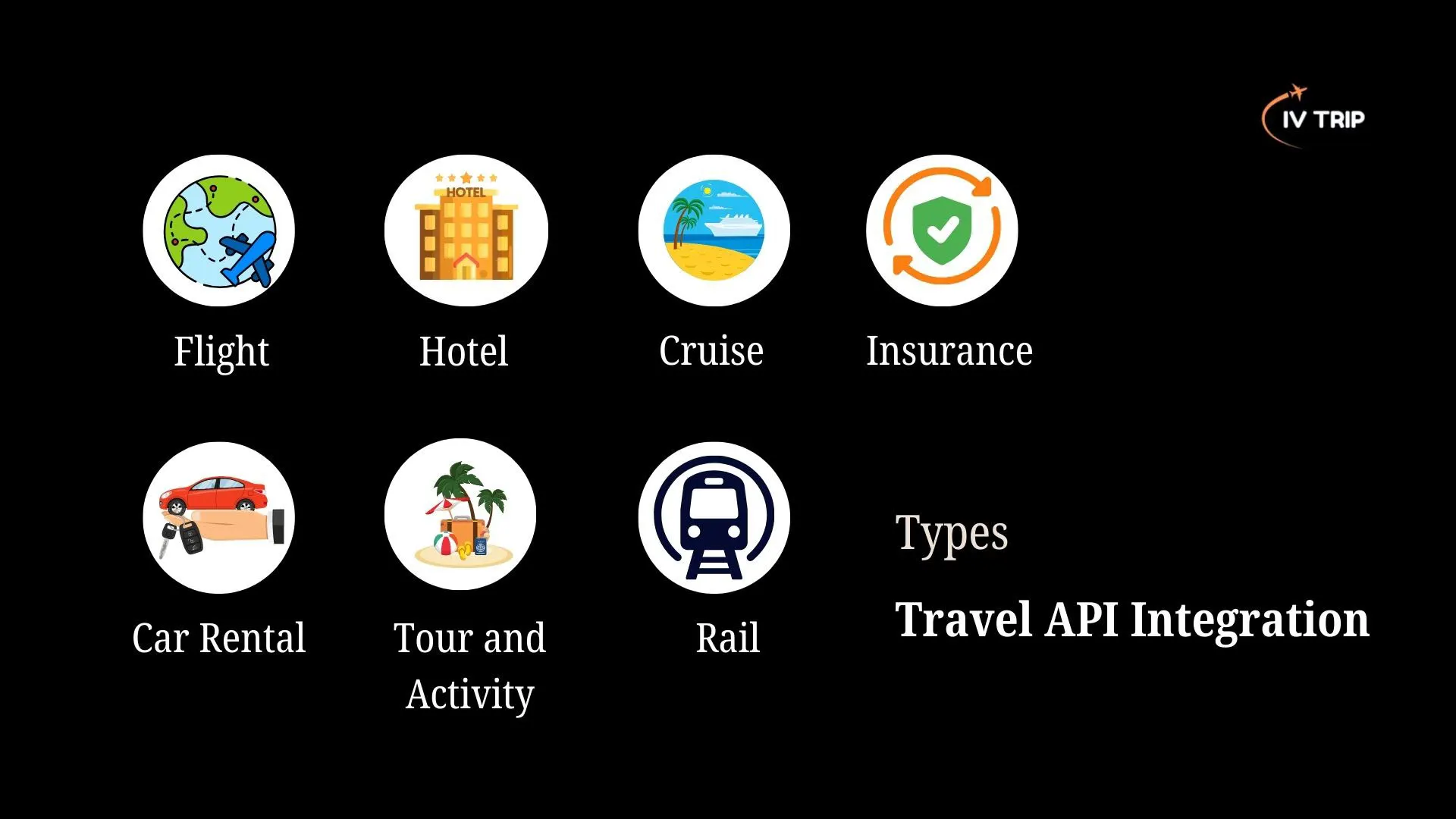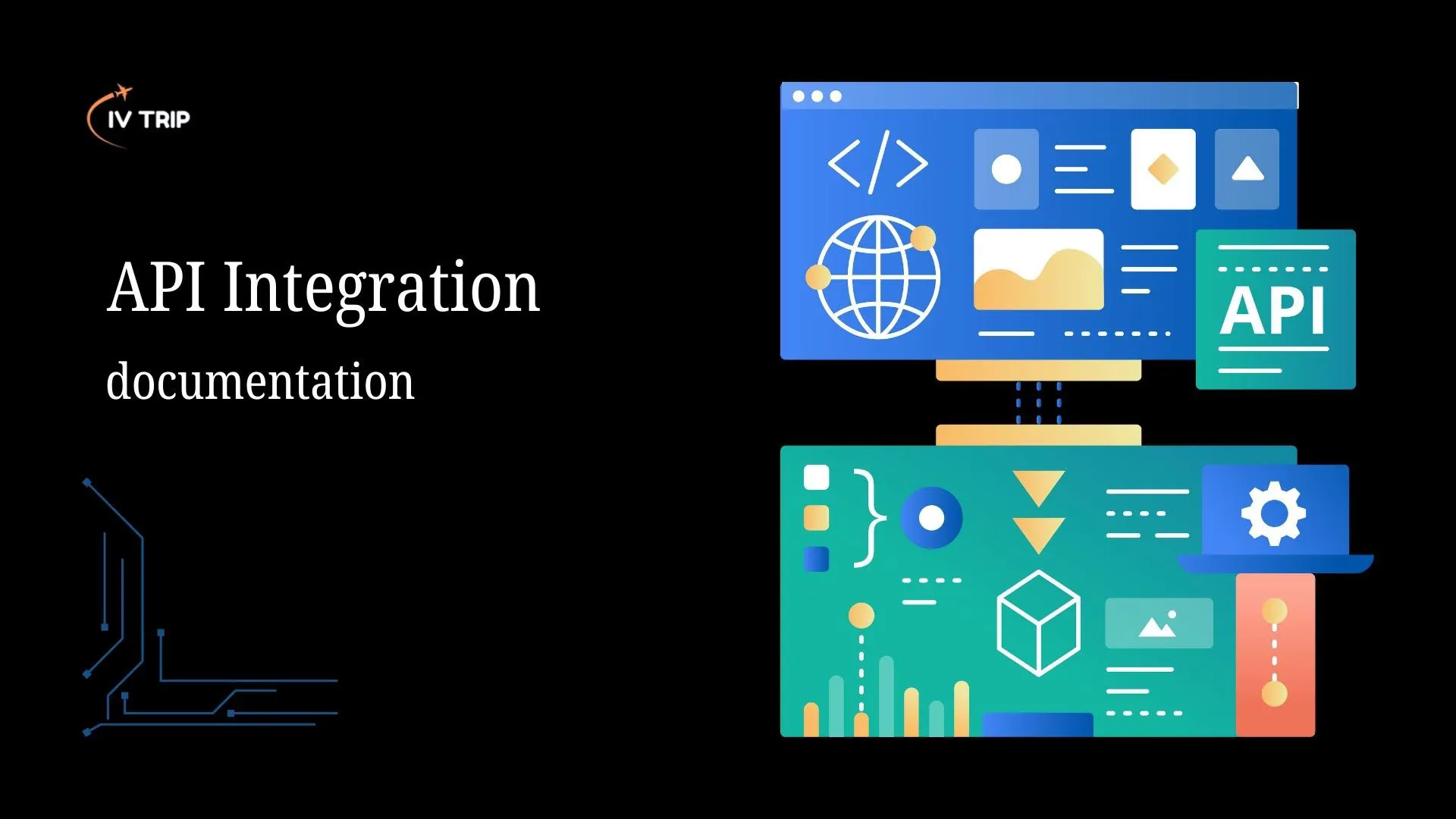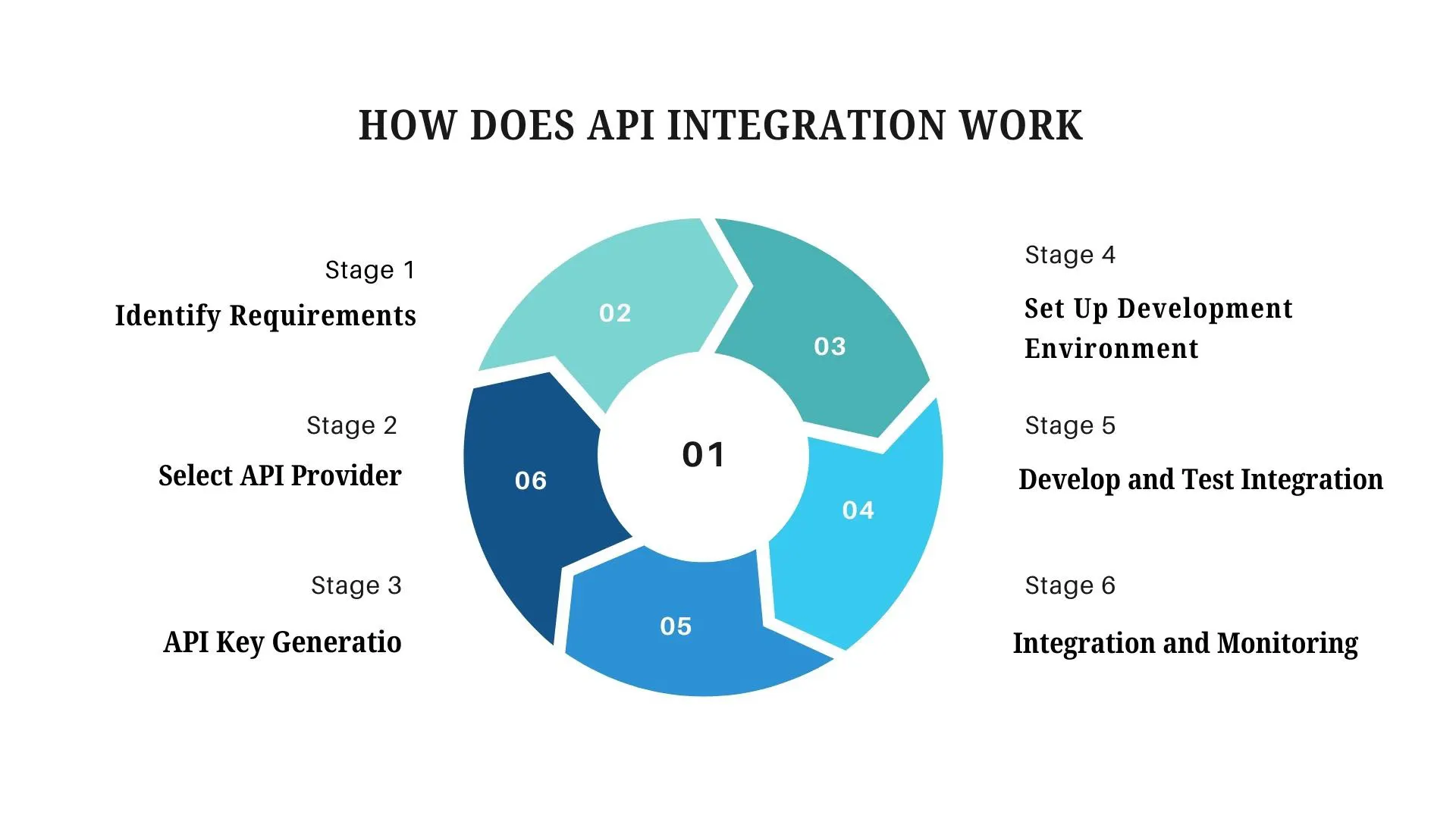API Integration in Travel Management Software

In the modern world, competing in the travel business requires adopting and incorporating modern technologies to advance the user interface and business processes. The overall improvement that has impacted travel management software the most is API integration (Application Programming Interface).
As a travel software company in Dhaka, Bangladesh, we acknowledge how API integration forms the future of travel at IV Trip. Within the limits of this blog post, the focus is on the concept of API integration, including its instruments and services, as well as on the opportunities it opens for travel businesses.
What is API Integration?
An API, or “Application Programming Interface,” is, according to Wikipedia:
“An application programming interface (API) is a way for two or more computer programs or components to communicate with each other. It is a software interface, offering a service to other pieces of software.“
But what is the meaning of this?
API integration can be described as a process that joins multiple software solutions to encase them into a single unified solution that knows how to share information.
APIs enable various travel service providers, including airlines, hotels, car rentals, and so on, to input real-time information, including inventory, pricing, and availability, into the booking systems of travel agencies.

Types of Travel API Integration
Flight: Travel agencies get real-time information about flights, their schedules, fare rates, and other booking information from the various airlines. When the agencies incorporate flight APIs, customers get the best flight schedules, competitive prices, and an easy booking option.
Hotel: Hotel API integration provides travel agencies with a broad list of hotels, providing complete information about room availability, price, additional services, and reservation methods. Such integration allows customers to access a wide variety of accommodation facilities of their choice at an affordable price.
Car Rental: This integration involves linking travel management software with car rental service providers, who offer live information on the vehicles in their possession, the rates for renting the cars, and the booking services. Another advantage is that customers can easily and quickly arrange rental cars as part of their vacation arrangements, improving the overall experience.
Tour and Activity: When partnered with travel agencies, these services can include daily tours and activities, local attractions, and sightseeing, among other related services. The API also enables consumers to purchase tour, activity, and event tickets, making their travel experiences more adventurous and memorable. Transfer APIs allow clients to book airport transfers, shuttle services, and personal car rentals. This integration will enable customers to have transport available throughout their trip.
Cruise: To elaborate, the cruise API benefits specialized agencies offering cruise vacations. It gives the agencies cruise schedules, availability of cruise cabins, pricing, and cruise booking opportunities from an array of cruise providers. It helps agencies provide complete cruise solutions and improve the services they provide.
Rail: This integration connects travel software with railway networks, providing real-time information on train schedules, availability, and ticket booking. It is particularly beneficial for regions where train travel is a popular mode of transportation.
Insurance: Travel insurance APIs allow agencies to offer insurance options through their booking platforms. Customers can compare and purchase travel insurance policies that suit their needs, ensuring peace of mind during their journeys.
Why Travel API Integration are Necessary: Time savings & data sync are just the beginning.
- Real-Time Data Access: APIs offer travel agencies real-time information, keeping inventory and prices current.
- Improved Customer Experience: The integrated services solutions imply that customers can find almost all necessary services in one place, resulting in more comfortable and successful bookings.
- Operational Efficiency: Automation of data exchange reduces the amount of work to be done, eliminates the possibility of errors, and accelerates the processes related to booking.
- Cost-Effective: Travel agencies can significantly cut costs by reducing the need for manual intervention and streamlining operations.
- Enhanced Customization: APIs empower travel agencies to be more sensitive to clients and create solutions that better fit their needs, improving customer loyalty.
How Does Travel API Integration Work?
- Identify Requirements: Determine the precise journeys your agency needs, such as airlines, accommodations, or car hire.
- Select API Providers: Select reputable API suppliers that can provide the requisite travel services and are relevant to the travel agency’s functioning.
- API Key Generation: Aquire API keys from the chosen suppliers for authorization and to gain access from the providers.
- Set Up Development Environment: Set up your development environment to include the selected APIs in your travel management system.
- Develop and Test Integration: Develop the code to establish a connection with the APIs and perform rigorous unit tests to check its effectiveness and correctness.
- Integration and Monitoring: Integrate the APIs into your software, check them periodically to ensure they run as they should, and update them if needed.
Advantages of Travel API Integration
- Enhanced Inventory Management: Real-time update of stock availability and prices from the different suppliers.
- Streamlined Booking Processes: Better satisfaction and efficiency in the customer booking process of the services.
- Personalized Services: Flexibility to provide travel services that are personalized according to the customers.
- Increased Revenue: Additional and broader usage of services insured can result in selling more products and the possibility of cross-selling other services.
- Scalability: It is more flexible for adding or modifying new services as the business evolves.
- Improved Customer Satisfaction: Good service delivery results in happier clients in the health sector and, hence, increased loyalty.
- Competitive Advantage: Start with the latest services and technologies by providing more information than a competitor.
- Cost Savings: minimized operational expenses due to automating the process and organization of data.
- Error Reduction: Reducing errors occasioned by handling large volumes of paperwork and increasing the accuracy of clinical data.
- Market Expansion: Diversifying into other geographical areas is less problematic because of the combination of travel services.

Frequently Asked Questions about Travel API Integration
Q1: What is an API in travel software?
A1: An API (Application Programming Interface) allows different software systems to communicate and exchange data seamlessly, providing real-time information and services.
Q2: What positive impact does API integration have on travel agencies?
A2: API integration applies to, among other things, optimizing inventory services, making bookings accessible and efficient, customizing services, and eradicating costs.
Q3: What are the typical tools employed for API assimilation in travel software?
A3: Popular tools include Mulesoft, Postman, RapidAPI, Swagger, and Apigee.
Q4: In what way do APIs enhance travel customers?
A4: APIs can provide instant information on specific and available services, making the booking process more effective for customers.
Q5: What is the process that is followed in the integration of API?
A5: Steps include identifying requirements, selecting API providers, setting up the development environment, reviewing documentation, generating API keys, developing and testing, integration and deployment, and monitoring and maintaining.
Q6: Is API integration possible to lessen a travel agency’s expenses?
A6: Integrating APIs means effectively exchanging data and enhancing business operations, leading to low operation costs.
Q7: Are there any hurdles to APIs in implementing the travel software system?
A7: Its difficulties are related to data protection, various API standards, working with a stop, and document updating.
Q8: In what ways is the use of APIs beneficial in the process of market growth for travel agencies?
A8: APIs are connected to travel services worldwide and provide real-time data, which can help agencies increase their market share.
Q9: How necessary is API documentation in the integration?
A9: API documentation is a set of recommendations and critical data for engineers handling API interactions.
Q10: How frequently should any API be dealt with, particularly monitored and maintained?
A10: API traffic should be constantly checked and supervised for problems and updates from the API provider to fix issues that might hinder the SOP’s performance.
Having integrated APIs for operation with travel clients is one of the most significant advantages in the travel business. They all have numerous benefits impacting performance, consumer satisfaction, and organizational revenues. Integrating with other reliable and efficient services has allowed travel agencies to become leaders in the competitive environment and create outstanding, valuable, and exciting experiences for their clients. API integration must be adopted and implemented so that it can be used to help elevate the status of a travel business.


